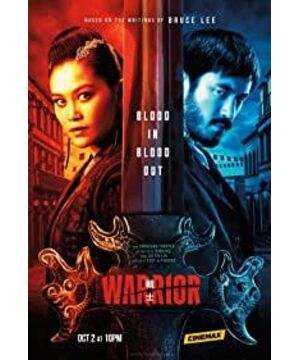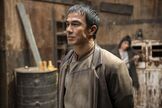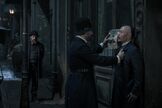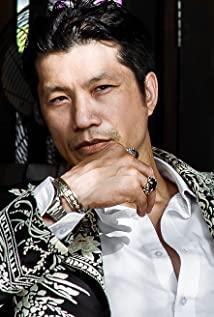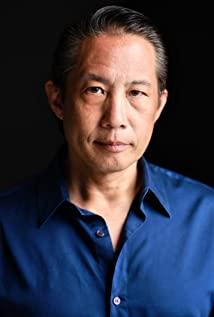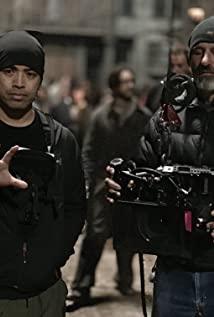origin
I was a little tired from reading books and wanted to change my mind, so I chose it in the new American drama. There are two things that interest me, one is that I have seen "Black Eat Black", the stylized gun and sex is very appealing to me; the other is the gimmick of the drama, which is Bruce Lee's idea, Bruce Lee himself The quality of the films written and directed is very high. These two points made me click it.
expected
Looking at the introduction, the location is Chinatown in San Francisco. At this time, it has only been twenty or thirty years since the gold rush occurred in the United States from San Francisco. The time point is after the American Civil War, corresponding to the time point in China, when the Taiping Rebellion just ended. New lands, new inhabitants, gangsters, racial conflict, competition for survival, brutality and order, violence and law, if the plot is exciting enough, these are enough to be enjoyable. Of course, there will be no shortage of Bruce Lee-like action fights and sex, because this is a cinemax station.
look and feel
Oh, in general, the expectations are basically correct, in fact, there are still many surprises.
In the first episode, the Chinese workers arrived at the beginning. This opening was especially wonderful. The Chinese workers who arrived on the shore were all thin and dazed. On the pier not far away, there were Irish people clamoring for the Chinese workers to go back, indicating that there was a conflict of interests and foreshadowing of racial conflicts. Then, when going through customs, the debate about hunger and falling food, as well as the fight between the protagonist Asan and the US customs officers, Na Lisuo's actions are Bruce Lee's signature at first glance.
At this beginning, the shots are neat enough, the background is clearly explained, and the foreshadowing is buried naturally. The personalities of the characters and the attitudes of the forces are revealed inadvertently, showing great skill.
This beginning is also very interesting, compared to what Monica said on the university podium in the American TV series "Yellowstone", when Columbus crossed the Atlantic Ocean and came to the Americas, he saw the Native Americans trading with them enthusiastically and providing them with food. Columbus was full of The mind is how good slaves these natives will be. Yes, Columbus set foot on a new land, faced with different races, and first thought of conquest and enslavement. In "Warrior", the Chinese are at a loss when they land on a new land, selling their labor, and enduring humiliation.
Obviously, the main creator is not only to describe the struggle between the Chinese gangsters. Like several of Bruce Lee's films, the main creator has great ambitions, because in one to four episodes, it not only paved the way for the mountains and rains between the Chinese gangs to come. The struggle also foreshadowed the political ecology after the American Civil War and the conflict between Irish workers and Chinese workers who were cheaper and more hard-working, thus brewing for the introduction of the Chinese Exclusion Act. So just watch the first four episodes, the plot is compact, the epic sense is sufficient, the geographical division of Chinatown and the white area, and the division of the gang power area are very powerful. Through the heroic incident of the hero, Asan, all the forces have appeared one after another, showing love and hate. Qiu, this technique is very similar to Lin Daiyu's entry into Jia's Mansion in A Dream of Red Mansions, showing the master's extremely sophisticated skills.
The first four episodes gave me a lot of surprises, and the biggest one was about land and order. I've read World War I Chinese Workers in France, but I don't know much about Chinese workers in America. This show shows enough details, especially about Chinatown, that completely shattered my imagination, but it's true, there are so many Chinese, white people alone can't manage it, it still needs outstanding Chinese people to manage it , thus forming forces, like unions but more like gangs, to bargain with whites. Because there are enough people, it is enough to form its own town, so it forms an enclave, but this enclave is not like an enclave established by the British and the Dutch. Their enclave is called a colony, while this enclave of Chinese workers is called Chinatown. But even Chinatown is an enclave, and the order in this enclave is established and maintained by the Chinese themselves.
This is a barbaric age, the most corrupt and darkest age in American history, so order is not based on law, but on violence. The Irish rely on violence to maintain their jobs, the police in San Francisco also rely on violence to maintain their authority, and the Chinese workers also rely on violence to maintain order within themselves. Although not much has been shown this season, it can also be seen that Chinatown society is basically divided into rulers, soldiers, and laborers (workers). The soldiers in the gang are not only the external army, safeguarding the interests of Chinese workers, but also the internal police, responsible for Collect protection fees and oppress Chinese workers. As soon as the protagonist came ashore, he was sold into a gang to become a soldier, and he didn't need to work. By the way, he also soaked in the wife of the mayor of San Francisco, a white beauty, really fucking lucky.
In the fifth episode, the main creator suddenly released himself. This episode has nothing to do with the main line, it's just a standard western, or a Quentin "Hateful Eight" style western. Maybe the main creator wants to prove to the TV station that this series is not only the main line, but also has good scalability and can expand a lot of things. For example, when a Chinese man and a white woman get married and open an inn together, they fight against bandits together, which clearly illustrates integration and arrogance and prejudice and discrimination.
The sixth episode returns to the main line, until the ninth episode, which is the conflict and killing between gangs whose interests are mainly the opium trade. Finally, a more advanced gang mediator appears, but this season, this mediator did not explain much. The means of mediating disputes, of course, has always been to determine the winner or loser in the arena. The protagonist, A Shan, lost the competition unexpectedly, and thus fell to the bottom, becoming a real "stinky onion" - the lowest laborer.
This turning point is very necessary, one is that everyone loves the drama of the return of the king, and the other is that A Shan has become a warrior since he came, and he has no worries about food and clothing, and lacks understanding and experience of suffering. The third is to show the real life of most Chinese workers.
In a crowded and dirty room, two people sleep in one bed, one person works two shifts, one person sleeps and the other person works, and the cycle starts over and over again. You can't get sick, you can't get hurt, because without medical care, without a doctor, sickness and injury mean death. At the beginning, Ashan gave up on himself as a coolie. Even though the broker encouraged Ashan with the example of escaping from Cuba, Ashan still stubbornly worked as a coolie until the death of the shop mate, until the Irishman ruthlessly smashed his compatriots in the factory. At this time, Ashan woke up. After awakening, Ah Shan joined the revolutionary force of the female brothel boss.
Therefore, this season is not only about the blood and tears of Chinese workers, about racial conflicts, about a migration epic of ethnic groups, but also about the growth of a man. When he first arrived in San Francisco, Ashan went from being a troublemaker to being belligerent and fighting but not taking responsibility. The young man grew up to be a man who admits his mistakes and protects his sister far from the ocean, but he turned into a frivolous and conceited gangster. In the end, he experienced the training of the bottom, the pain of failure, and the duckweed-like death of his compatriots. , experienced a fierce battle with the white race, understood his own value, became a gang fighter, and became the guardian of a Chinese worker ethnic group.
score:
Five stars. The actual four stars, but the subject matter and feelings plus one star. This drama is skillful in technique and relaxed in rhythm; the plot twists and turns, and there are often surprises; the restoration of history and details is excellent, it is very helpful for understanding that period of history, and it is also very helpful for understanding the formation of a society and the character of the Chinese people. helpful. If combined with "Albion's Seed", it is even more meaningful.
Very recommended.
View more about Warrior reviews


